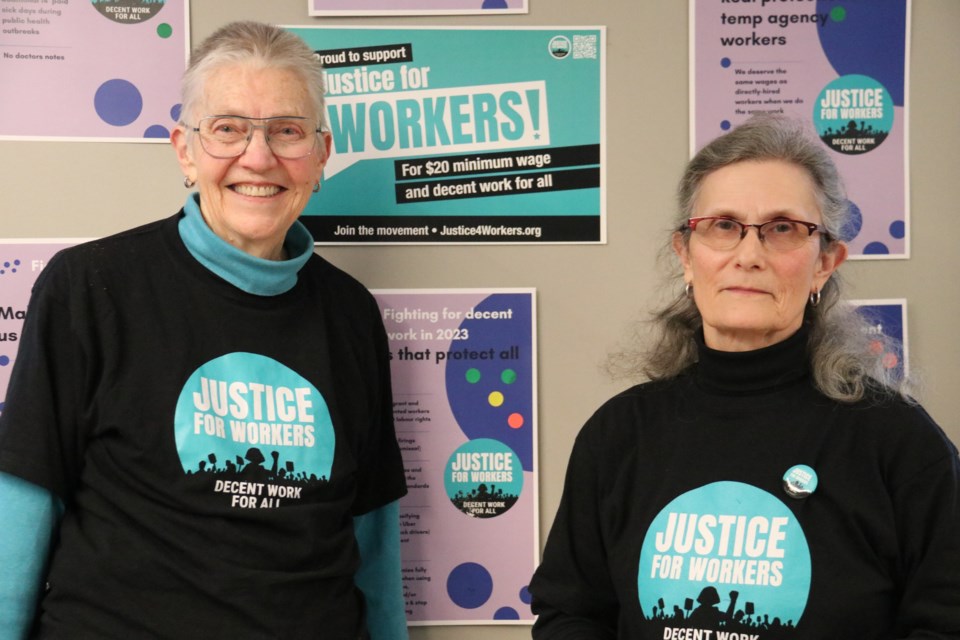More than 50,000 Canadians have died due to the COVID-19 pandemic.
According to Susan Rosenthal, lead organizer of Justice for Workers Guelph, these people have mostly been working class and racialized people who have no choice but to work in crowded and unhealthy conditions, exposing themselves to viruses like COVID-19.
In that time, billionaires in Canada grew 51 per cent richer.
“At the same time, Guelph’s Royal City Mission served twice as many hungry and unhoused people,” she said. “We need more, and we deserve more. This is why we are Justice for Workers.”
The Guelph chapter of the activist organization celebrated their first anniversary on Sunday, gathering at 10C to share stories and hear from a veteran of rebellion movements in the 1960s and 70s.
“We’re not a political party, we don’t insist you have any particular kind of political beliefs. All we care about is that you are willing to fight with us around those basic demands,” Rosenthal said.
In particular, the group is after workplace changes like paid sick days, higher minimum wages and ending racism, discrimination and workplace bullying.
Pam Frache, member of Justice for Workers affiliated with the Workers’ Action Centre in Toronto, noted paid sick days were reduced prior to the pandemic when the Ford government was first elected, meaning many people went into the global pandemic with fewer – or no – paid sick days.
“He sent workers into the pandemic with fewer protections, with lower wages, and with less means of protecting themselves. So it’s not surprising when we think about how many people died through the pandemic,” Frache said.
“Everybody knows things have to change. The problem is how do you do it – that’s not clear. That’s the reason we’re coming together, to figure this out. What is the best way to fight? What can we learn from the past?”
And the past tells us collective action can make a difference, according to Guelph local Linda Page.
As a veteran of activist movements in the 60s and 70s, Guelph local Linda Page shared what it was like being involved in the civil rights movement, the women's movement, protesting against the Vietnam War; she shared stories of disrupting KKK rallies in the San Fernando valley and evading police for supporting strike rallies while six months pregnant.
“For me, the sixties were all about working for political and social change,”like higher wages and fighting discrimination. And much of that change, she believes, stemmed from connection.
“Liberation is like a box of matches. One starts to burn, and they all catch fire,” she said. “We didn’t have some of the advantages we have today, but we had the same sense of unity. Gay, straight, Black, white, one battle, one fight.”
When her husband at the time was arrested after years of protesting, they fled to Canada, and eventually Page ended up in Guelph, where she met Rosenthal.
Once here, she turned her attention to the labour movement, because of how central work is to all our lives; we all have work in common, she said, which makes it a great issue to connect on.
“I thought, that’s what we need, to connect around our common experiences, and work, and how to make it better.”
Collectively, the organizations various chapters run events like Beat the Bosses Bootcamp happening in Toronto at the end of February, to address issues like bad bosses, economic and racial justice, and building solidarity.
Their next meeting is Feb. 26 at 3 p.m. If you’d like to learn more about the Guelph chapter of Justice for Workers, you can visit their Facebook page or email Rosenthal at [email protected].
